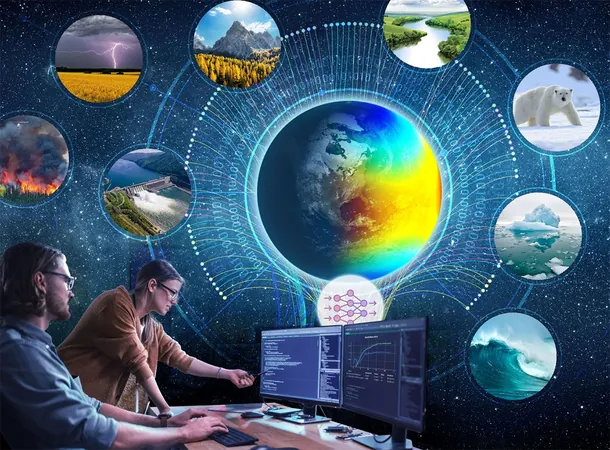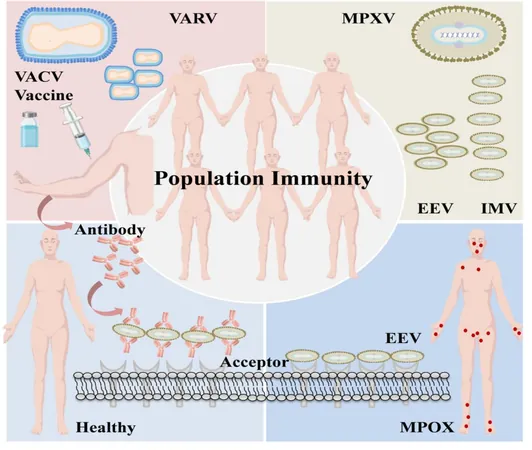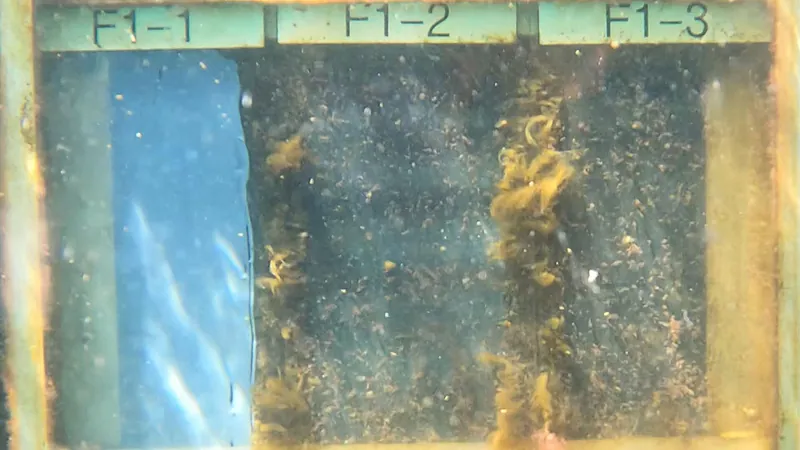
Transforming Earth Science: Unlocking AI Skills for Tomorrow
2025-04-29
Author: Siti
Can AI Revolutionize Earth Science?
Can today’s Earth scientists harness artificial intelligence and machine learning (AI/ML) to enhance their research capabilities? According to innovative training programs at the U.S. Department of Energy’s Pacific Northwest National Laboratory (PNNL), the answer is a resounding yes!
Earth scientists tackle vast datasets—sometimes global in scale—looking for patterns in complex real-world data. The rise of AI/ML offers a powerful ally in this quest, as these technologies excel in analyzing and interpreting such large volumes of data. Examples are already emerging, like AI replacing slow rainfall simulations in climate models and enhancing short-term rainfall predictions using weather radar data.
A Growing Demand for AI Training
Despite the advances in AI, many Earth scientists have yet to fully embrace these techniques. Recognizing this gap, PNNL launched an ambitious training program aimed at integrating AI into Earth science research. The program features a novel two-step approach—beginning with an intensive boot camp and culminating in a collaborative hackathon.
Boot Camp: Building a Foundation in AI/ML
The journey began in fall 2022 with a 10-week boot camp that attracted between 30 and 50 participants eager to learn about AI/ML applications in their fields. Seasoned data scientists at PNNL designed an engaging curriculum that ranged from foundational machine learning concepts to sophisticated techniques like convolutional neural networks and generative adversarial networks.
Activities were tailored to Earth science applications, allowing participants to analyze real datasets, like satellite sea surface temperatures, using advanced AI methods. Feedback was overwhelmingly positive, with attendees expressing newfound confidence in applying AI/ML techniques to their research.
Hackathon: Bridging Theory and Application
Following the boot camp, a hackathon was organized in January 2024, bringing together 25 Earth and data scientists to solve specific research challenges through collaborative efforts. Teams focused on critical topics such as cloud dynamics and hydrology while directly applying AI techniques learned in the boot camp.
Participants honed their skills by tackling real-world questions, each team guided by ML experts. While some faced challenges with data preparation, most successfully processed data and gleaned valuable insights from their experiments.
Fostering Collaboration and Innovation
The programs at PNNL created a bridge between data scientists and Earth scientists, igniting new collaborations and inspiring innovative projects. Both the boot camp and hackathon highlighted the necessity of cross-disciplinary connections, demonstrating that meaningful progress in science occurs when diverse thinkers come together.
Participants reported exciting outcomes, including conference presentations and publications driven by their newfound skills. The success of these initiatives suggests PNNL's approach could serve as a model for other organizations grappling with similar challenges.
The Future is Bright for AI in Earth Science
As Earth observation datasets continue to expand and computational methods evolve, the integration of AI/ML in Earth science is becoming indispensable. With over 20% of its research workforce dedicated to AI projects, PNNL is not just leading the way—it's paving a path for others to follow.
The positive momentum generated by these training programs underscores the potential for AI to transform Earth sciences, from atmospheric studies to marine and geological research. As scientists like Sha Feng eloquently put it, these efforts help bridge the gap between disciplines, opening doors for groundbreaking research and collaboration that can significantly impact our understanding of the planet.
Conclusion: A Call to Action
The legacy of PNNL’s boot camp and hackathon reflects a broader need in science education: to embrace AI/ML as essential tools for the future. Other organizations are encouraged to adopt similar training methodologies to unlock the full potential of their researchers, leading to exciting new insights into the Earth's complex systems.






 Brasil (PT)
Brasil (PT)
 Canada (EN)
Canada (EN)
 Chile (ES)
Chile (ES)
 Česko (CS)
Česko (CS)
 대한민국 (KO)
대한민국 (KO)
 España (ES)
España (ES)
 France (FR)
France (FR)
 Hong Kong (EN)
Hong Kong (EN)
 Italia (IT)
Italia (IT)
 日本 (JA)
日本 (JA)
 Magyarország (HU)
Magyarország (HU)
 Norge (NO)
Norge (NO)
 Polska (PL)
Polska (PL)
 Schweiz (DE)
Schweiz (DE)
 Singapore (EN)
Singapore (EN)
 Sverige (SV)
Sverige (SV)
 Suomi (FI)
Suomi (FI)
 Türkiye (TR)
Türkiye (TR)
 الإمارات العربية المتحدة (AR)
الإمارات العربية المتحدة (AR)